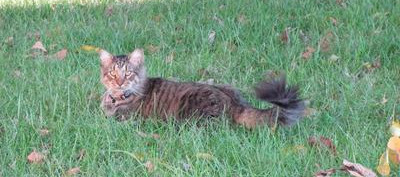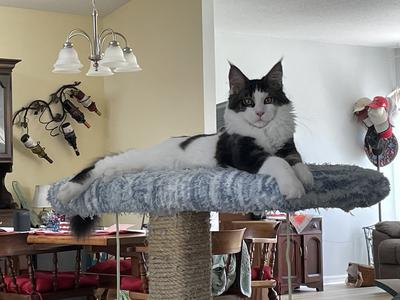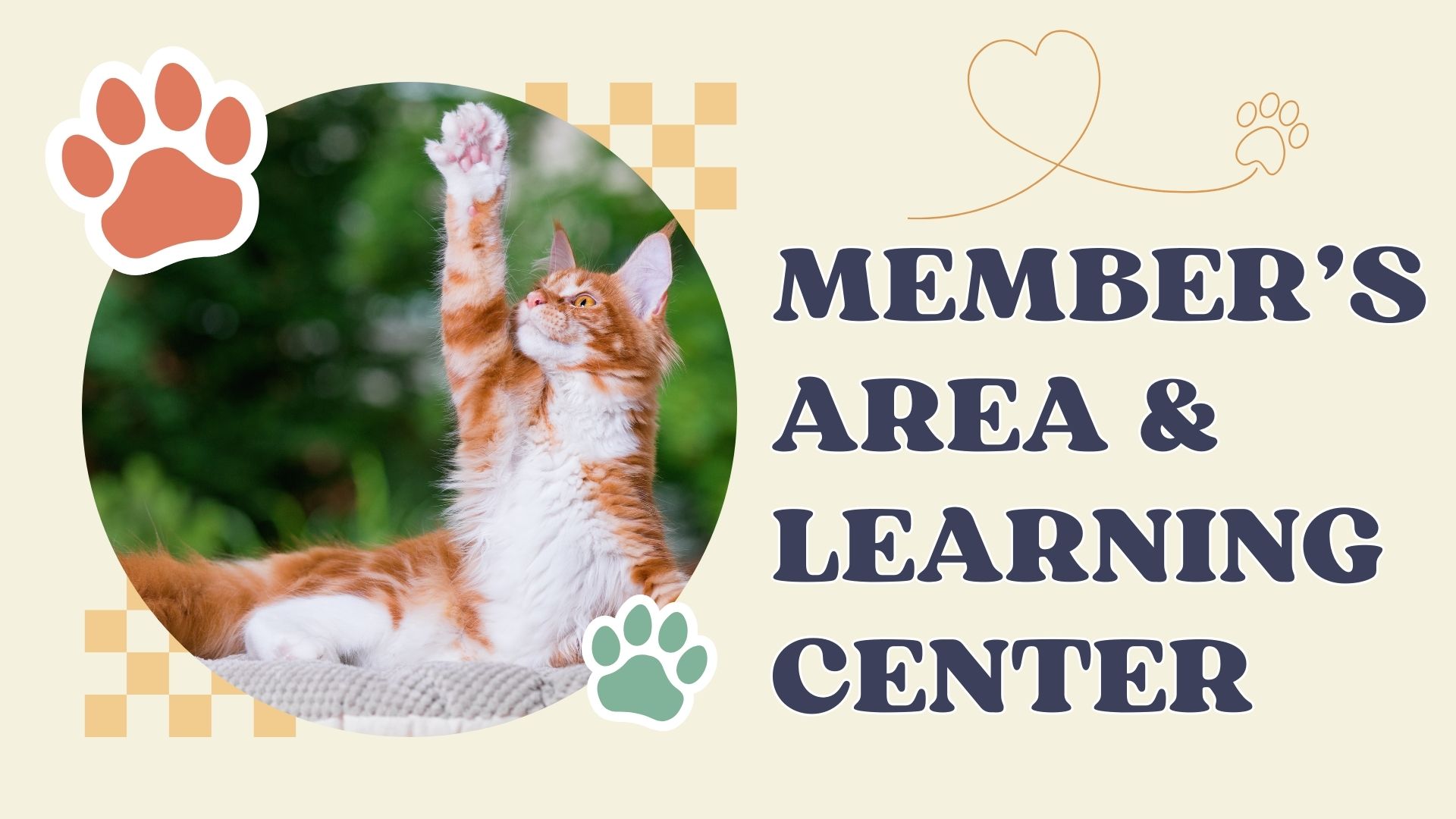- Home
- Health Care
- Elderly Cat Health Problems
Elderly Cat Health Problems
"What you need to know when caring for an older cat"
Do you worry about potential elderly cat health problems as your furry friend enters their senior years?
After so many years together, your cat is more than a pet - they’re a cherished family member.
As they age, it’s essential to stay tuned in to their changing needs. Cats are experts at hiding discomfort, so they won’t let you know when something’s wrong. That’s why keeping a close eye on their health is so important.
Let’s explore how to make your cat’s golden years as happy and healthy as possible.
Arthritis in Cats
This is one of the more common elderly cat health problems. Just as people get stiff joints, aches and pains, so do cats. It's so important to help your cat get relief from painful arthritis.
Keep an eye out for any difficulties climbing stairs, getting on furniture, or just a hard time getting around. You'll know when your cat is stiff, or doesn't seem comfortable.
Treatments
Cats can have devastating reactions to aspirin and acetaminophen, so never give medications without your veterinarian's advice. Chondroitin and glucosamine supplements can help promote healthy joints.
What You Can Do
As cats age, their muscles will shrink if they're not used. Exercise is more important than ever! Play with your cat, and keep his favorite toys around. Give him places to hide and hunt, like boxes or paper bags.
If it's hard for him to get around, consider a ramp for climbing. Set him up with a nice comfy bed on the floor.
And keep everything on one floor if it's hard for him to climb the stairs. This includes the litter boxes, which should have low sides.

Kidney Problems in Cats
This is one of the more serious elderly cat health problems. Decreased kidney function is something to be on the lookout for with senior cats.
Signs
Increased drinking and urination. Unfortunately these symptoms don't show up until the cat has lost about 70% if his kidney function already.
So, at your cats regular check-up your vet may start some routine blood-work or urinalysis to make sure the kidneys are functioning well.
Treatment
Your vet will prescribe medications and perhaps a diet change. In some cases, fluids need to be administered.
And anesthesia becomes more risky, so the kidney function will be checked before this, too.
Diet and Nutrition Considerations
Middle age cats tend to put on weight and become heavier. Then as they get into their senior years they slim down again.
Their digestion slows down and fatty foods become harder to digest. This slower digestion can also result in constipation issues.
Choosing a quality cat food made for senior cats will help him stay healthy.
Gingivitis in Cats
One of the elderly cat health problems to think about is gingivitis. Gingivitis can occur at any age, but they become more typical with age.
Dental problems can cause real discomfort in your cat.
One thing you can do to help is brush your cats teeth. If he will let you do it, there are special cat toothbrushes and meat flavored toothpaste at the pet store!
Many pets need to have their teeth cleaned at the vet periodically as well.
Vision and Hearing Loss
Just as in elderly people, senior cats are prone to hearing and vision loss. If your cat has trouble hearing you'll notice it.
At first it might seem like sudden aggression on his part. But he was probably just startled by your approach.
Elderly cat health problems include cataracts. If you think you see one beginning to develop, bring it to your vets attention right away.
Skin and Coat Changes
As cats age, their skin undergoes changes, becoming less elastic and slower to heal.
This makes senior cats more prone to skin injuries and infections. Their coat may also thin, lose its shine, and appear dull or dry.
These changes can sometimes be a normal part of aging, but they may also indicate underlying issues such as disease, poor nutrition, or vitamin deficiencies.
If you notice sudden or significant changes in your elderly cat’s skin or coat, it's important to consult your veterinarian, as it could signal conditions like thyroid disorders, kidney disease, or infections.
One effective way to support your senior cat’s skin and coat health is by adding a fatty acid supplement to their diet, which can improve the coat’s texture and shine while promoting overall skin health.
Regular brushing is especially important for senior cats, as their grooming habits often decline with age.
Brushing not only helps reduce the risk of hairballs, which can be more problematic for older cats, but it also stimulates the skin’s natural oils, improving coat health.
During grooming, take the opportunity to check for any lumps, bumps, or skin abnormalities.
Early detection of changes can help catch potential health problems before they become serious.
Senility
Senility, or cognitive disorder can affect elderly cats. If your cat seems confused, or if his personality seems to change, this may be the reason.
Some symptoms might be howling for no reason, or staring off into the distance. Keeping him mentally engaged for as long as possible will can help ward off senility.

Senior Wellness: Caring for Your Cat’s Golden Years
As our cats grow older, their needs change. Just like us, they can develop age-related health issues that require a little extra attention.
Regular vet visits become more critical during this stage of life to catch any potential problems early and keep your senior cat feeling their best.
Here are some key ways to support your aging feline:
Frequent Vet Checkups:
Senior cats (typically over 7–10 years old) benefit from checkups every six months.
This allows your vet to monitor for common issues like arthritis, kidney disease, hyperthyroidism, or dental problems.
Early detection can make treatment easier and improve quality of life.
Mobility Matters:
Arthritis is a common issue in older cats, even if they don’t show obvious signs.
Watch for subtle clues like hesitance to jump or stiffness after resting. Consider providing low-sided litter boxes, ramps, or soft bedding to ease their daily activities.
Nutritional Needs:
Senior cats often need a diet tailored to their aging bodies.
Look for high-quality senior cat food designed to support joint health, kidney function, and weight management.
Always consult your vet before switching diets.
Hydration Help:
Older cats are prone to dehydration, especially if they develop kidney issues. Encourage drinking by using a cat water fountain or offering wet food with a high moisture content.
Behavioral Changes:
Keep an eye out for shifts in behavior, such as increased vocalization, changes in litter box habits, or withdrawal.
These can indicate pain or underlying health issues that need attention.
Beating Elderly Cat Health Problems
You Can Help Your Cat Feel His or Her Best!
Staying on top of these elderly cat health problems will help make the most of your cat's golden years.
This is a time for him to be pampered and treasured. He's earned it!
Top of Elderly Cat Health Problems
« Back to Maine Coon Health



